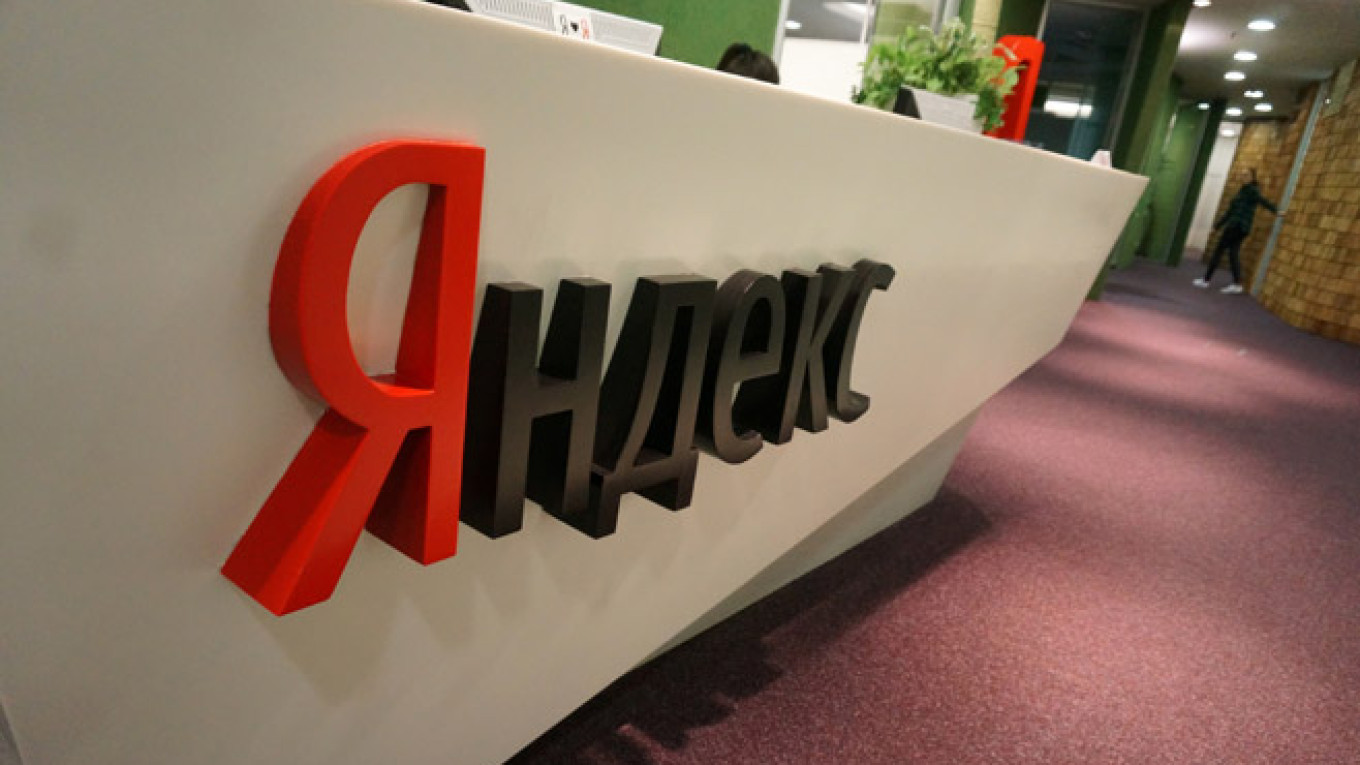NEW YORK — The European Union's antitrust probe into Google sparked a big rally in Russian search engine Yandex NV last week, even though the "Russian Google" still faces significant challenges, competitive and otherwise.
Yandex has amassed a $6.54 billion market capitalization, mainly by selling advertising against the web browser used on 64 percent of Russian desktop computers.
But it has lost market share as Russian consumers have adopted Android-based cell phones that come pre-loaded with Google products that compete directly with Yandex applications.
It also saw earnings suffer as the Russian economy was hit by weak oil prices and Western sanctions over Moscow's role in the Ukraine crisis.
First-quarter earnings, due April 28, are seen falling 29.6 percent compared with a year earlier but revenue is seen up 11.9 percent, according to analysts surveyed by Thomson Reuters.
With Russian stocks recovering and the EU looking into whether Google has an unfair competitive advantage, some investors hope Yandex can win more screen space and advertising revenue. A recently announced deal with web browser Mozilla to make Yandex its default search engine in Turkey also may herald growth prospects for the company.
Yandex continues to grow, even though it faces the Google threat, said Susan McDonald, an investment manager on Aberdeen's London-based global emerging markets equities team, which recently began buying Yandex shares.
The stock, whose U.S. listing is on Nasdaq, rose 15.4 percent last week, the biggest one-week jump since April 2013, following the EU's Google announcement. They are up 14.4 percent year-to-date, based on their Monday closing price, less than the 31 percent rise in the Market Vectors Russia ETF's, a favorite way for U.S. investors to play the country.
The pop in Yandex's stock may have been overblown, suggested Robert Lutts, president of Cabot Money Management in Salem, Massachusetts, a long-term bull on Russia but skeptical about Yandex. "There was clearly a knee-jerk reaction to the idea it could help the regulatory environment, but I suspect there's no real benefit."
Investigation
The Russian Federal Antimonopoly Service is also investigating Google's competitive practices in Russia after Yandex asked for such a probe.
The EU probe "supports allegations that Google abuses its dominant position on the mobile market by suppressing competition," Yandex told Reuters Monday via e-mail, noting the EU requested evidence about Google's practices in Russia prior to the probe's announcement.
If Google were forced to stop bundling its product suite with phones using the Android operating system, that could open the way for Yandex to expand its mobile market share and ad revenue. That could be far down the road, though, with Google fighting the charges.
About 86 percent of Russian smartphones use Android, according to Gazprombank. In the fourth quarter, Yandex's Android market share was 44 percent, down from 49 percent the previous year.
In citing that data in its February downgrade of Yandex stock, Gazprombank said the company's "very limited ability to compete with Google" would erode its total Russian search market share eroding to 56 percent in 2018.
Yandex says its Russian search market share, including mobile, was 59.7 percent in the fourth quarter.
The company's forward price-to-earnings ratio of 25.65 is higher than Google but well below the triple-digit ratios of some U.S. Internet stocks. To compare with another Russian Internet company, electronic payments service provider Qiwi Plc has a ratio of 18.35.
"It's difficult for Yandex that the future of the market is in mobile devices," said McDonald. "Yandex faces some challenges, but any volatility just provides the opportunity to buy a good long-term prospect while it's cheap."


